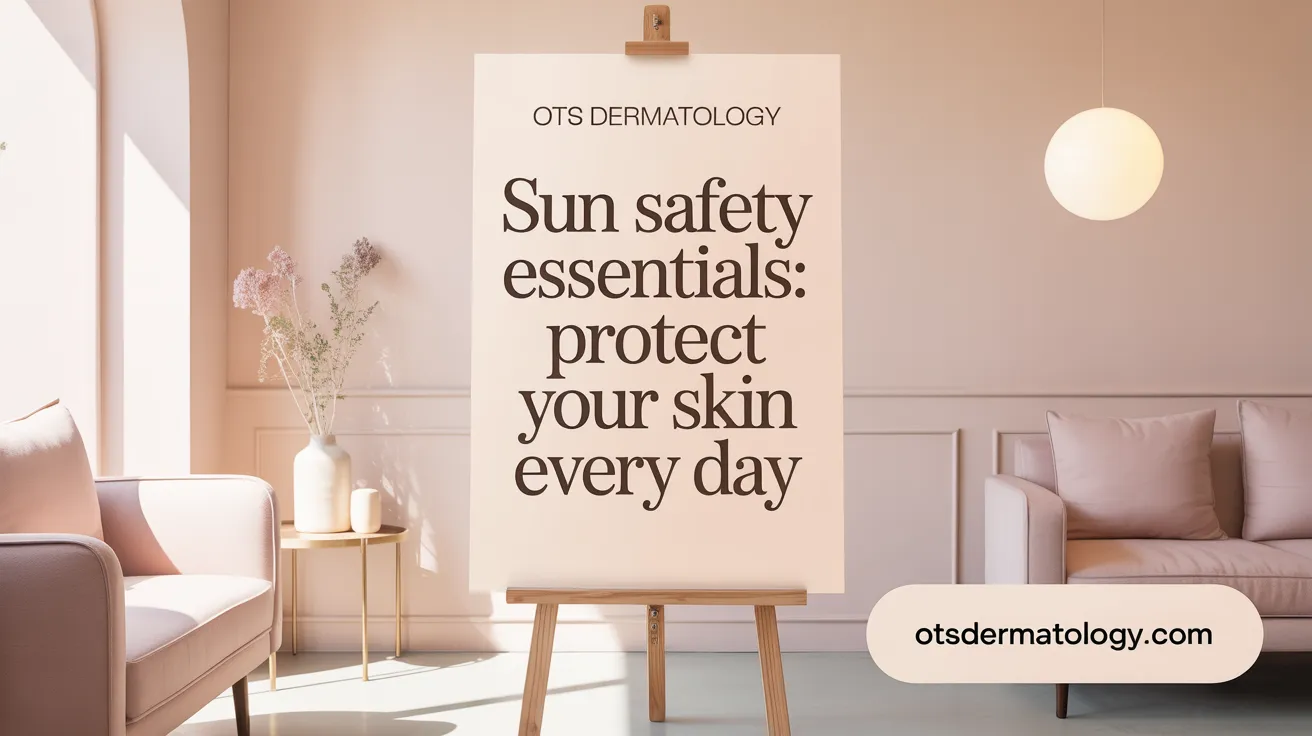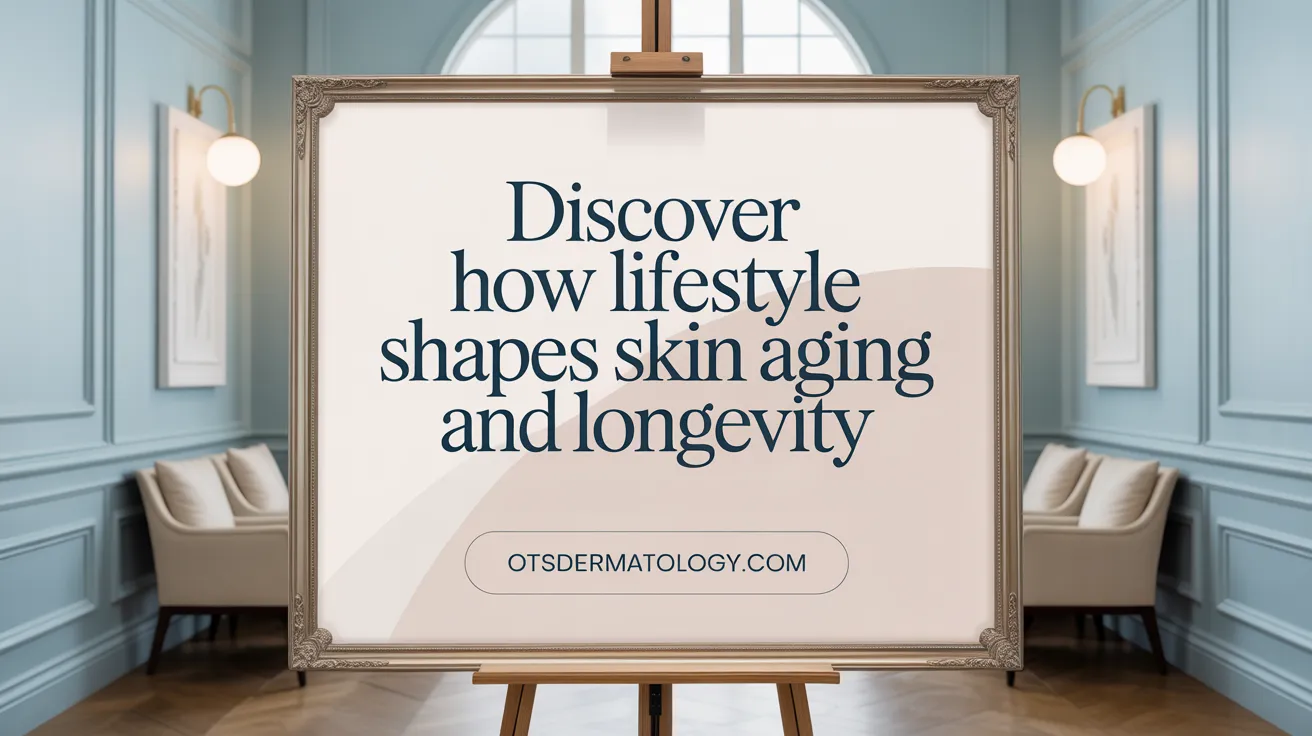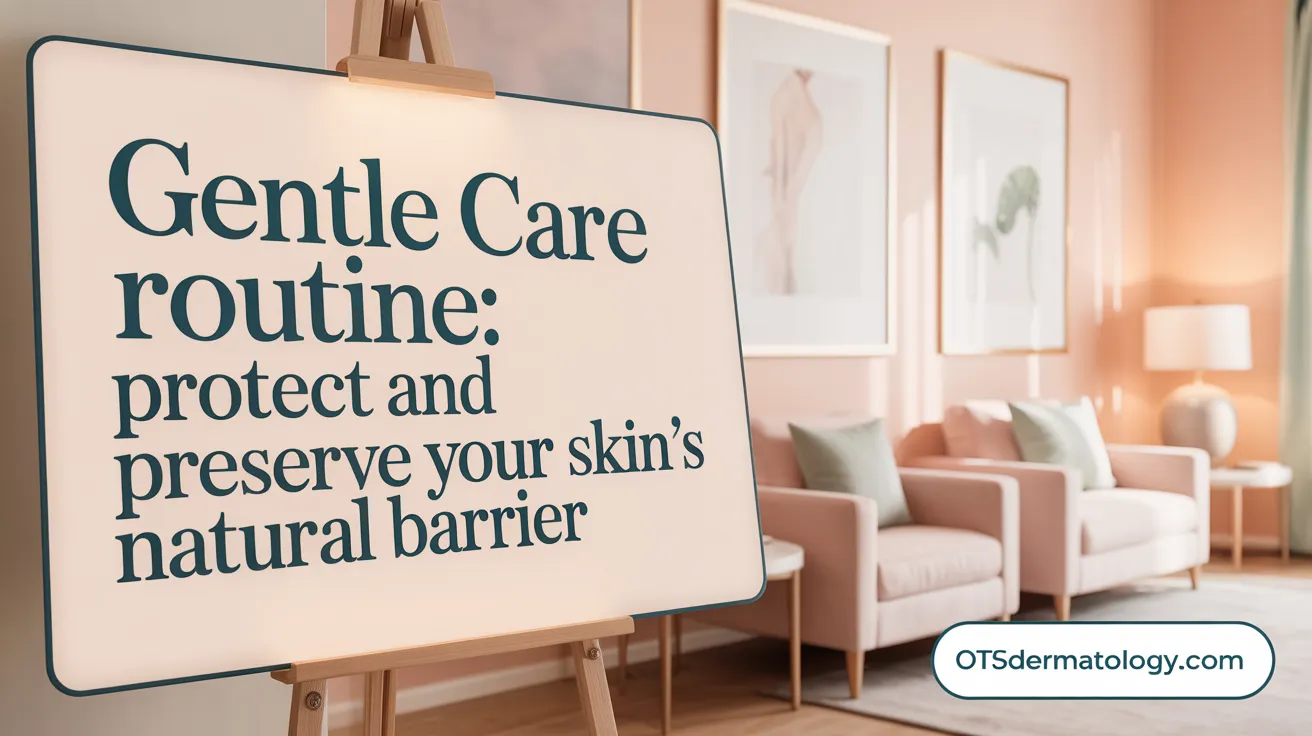The Foundation of Healthy Skin
Healthy skin plays a vital role not only in appearance but also in overall health by serving as a protective barrier against environmental hazards. Preventive skin care strategies are essential to maintain skin's resilience, delay signs of aging, and reduce risks such as skin cancer. This article explores evidence-based approaches for long-term skin health through daily habits, protection, diet, and professional care.
Daily Sun Protection: The Cornerstone of Skin Health

What are effective methods to protect skin from sun damage?
Effective sun protection involves several key practices. Daily application of broad-spectrum sunscreen with an SPF of at least 30 is essential. Sunscreen should be reapplied every two hours or more frequently if swimming or sweating. Seeking shade during peak UV hours, from 10 a.m. to 4 p.m., when ultraviolet rays are strongest, is particularly important. Wearing protective clothing, including long-sleeved shirts, long pants, and wide-brimmed hats that offer UV protection, adds an extra layer of defense. It is also crucial to avoid tanning beds and indoor tanning, as these expose skin to harmful UV rays that accelerate skin aging and increase the risk of skin cancer.
How does sun exposure affect skin aging and cancer risk?
Ultraviolet (UV) radiation from the sun is a leading cause of photoaging. It damages the skin's collagen and elastin fibers, resulting in wrinkles, age spots, uneven pigmentation, rough texture, and loss of skin elasticity. Prolonged and unprotected sun exposure increases the risk of serious skin cancers, including melanoma, basal cell carcinoma, and squamous cell carcinoma. Consistent use of sun protection measures not only helps preserve youthful skin but also significantly reduces the risk of developing skin cancer.
Maintaining these sun protection habits daily strengthens your skin’s resilience and health, preventing premature aging and safeguarding against the potential harms of UV radiation.
The Impact of Lifestyle Choices on Skin Longevity

How does smoking affect the skin?
Smoking has a detrimental effect on skin health by narrowing blood vessels, which reduces the flow of oxygen and nutrients essential for skin maintenance. It also damages collagen and elastin fibers, the proteins responsible for skin's firmness and elasticity. These impacts accelerate skin aging, causing wrinkles and dullness, and a loss of skin elasticity. Moreover, smoking increases the risk of certain skin cancers, including squamous cell carcinoma. For more on the effects of smoking on skin health, see this detailed guide.
Managing stress to prevent skin conditions flare-ups
Chronic stress triggers skin sensitivity and can worsen conditions like acne, psoriasis, eczema, and rosacea. Stress management techniques—such as meditation, yoga, regular physical activity, and engaging in relaxing hobbies—help reduce this skin inflammation and prevent flare-ups, supporting a healthier skin appearance.
Benefits of adequate sleep and hydration
Getting 7 to 9 hours of quality sleep nightly is crucial for skin repair and renewal, helping reduce signs of skin tiredness, dullness, and premature aging. Hydration plays a vital role as well; staying hydrated by drinking sufficient water maintains skin moisture and supports its barrier function, preventing dryness and maintaining skin suppleness.
Role of balanced diet rich in antioxidants and nutrients
A balanced diet abundant in fruits, vegetables, whole grains, and lean proteins supplies antioxidants and essential nutrients that nourish the skin from within. Antioxidant-rich foods like berries and leafy greens help protect skin cells from damage and support collagen production, which contributes to slowing skin aging and maintaining a youthful glow.
Impact of alcohol and processed foods on skin health
Excessive alcohol consumption dehydrates skin, leading to tired and aged appearance, while processed foods and sugars can damage collagen and elastic fibers. Limiting these can help preserve skin structure, reduce inflammation, and slow down premature aging. For additional tips on managing diet and stress for skin health, refer to this resource.
Adopting these lifestyle habits complements daily skin care routines and sun protection, significantly contributing to skin longevity and healthier skin overall.
Gentle Skin Care Practices for Maintaining Integrity

What are recommendations for gentle daily skin care?
Gentle skin care begins with using mild cleansers that are fragrance-free. These avoid the irritation and dryness often caused by harsh soaps. Washing with warm water is preferred to protect the skin’s natural oils. It's best to limit bathing time to 5-10 minutes to prevent excessive dryness.
When shaving, always shave carefully in the direction of hair growth. This method reduces irritation and helps prevent razor bumps or cuts. After cleansing or shaving, pat the skin dry gently instead of rubbing to maintain moisture and avoid damage.
Daily moisturizing is essential to support the skin barrier and hydration. Products with ingredients like ceramides, glycerin, or hyaluronic acid are highly recommended, especially for dry or aging skin. Regular moisturizing helps maintain suppleness and protects against environmental stressors.
Why is selecting products suited to skin type important?
Choosing skin care products tailored to your specific skin type and condition is crucial for maintaining healthy skin. For example, dry skin benefits from richer, more moisturizing formulations, while oily skin may require lighter, non-comedogenic products to avoid clogging pores.
This personalized approach minimizes the risk of irritation, excessive dryness, or acne breakouts. It also ensures that your skin’s natural functions remain balanced, helping to prevent exacerbation of existing skin issues and promoting overall skin integrity.
Nutrition and Hydration: Fueling Skin Health from Within
How does diet influence skin health and aging?
A balanced diet rich in fruits and vegetables for skin, whole grains and lean proteins plays an essential role in maintaining healthy skin. These foods provide antioxidants like vitamins C and E, which protect skin cells from environmental damage and promote collagen production, a protein vital for skin firmness and elasticity. Additionally, carotenoids found in colorful fruits and vegetables contribute to a brighter complexion and healthy skin pigmentation.
Limiting processed sugars and unhealthy fats is also important because excess sugar can damage collagen and elastin fibers, accelerating signs of premature skin aging such as wrinkles and sagging. By avoiding these foods, you help preserve the skin’s structural integrity and slow the aging process.
Why is proper hydration important for skin?
Drinking enough water is crucial for keeping the skin hydrated from within. Good hydration supports the skin’s moisture barrier, improves elasticity, and helps prevent dryness and dullness. Well-hydrated skin appears plump and resilient, while dehydration can lead to tightening, flakiness, and early appearance of fine lines.
In summary, nourishing your skin through a diet rich in antioxidants, carotenoids, and lean proteins, alongside maintaining adequate hydration, is fundamental to supporting skin health, brightness, and youthful appearance over time.
Advanced Preventive and Corrective Skincare Approaches
What are effective topical ingredients for preventing and treating aging skin?
Topical antioxidants such as vitamin C play a crucial role in protecting the skin from oxidative damage caused by environmental stressors. They not only brighten the complexion but also reduce dark spots and improve skin texture. Vitamin C stimulates collagen production, which is essential for maintaining skin firmness and elasticity.
Retinoids in skin renewal, derivatives of vitamin A, are highly effective for skin renewal. They promote exfoliation, boost collagen synthesis, and help diminish fine lines, wrinkles, and uneven pigmentation. Consistent use of retinoids, alongside daily broad-spectrum SPF protection, can lead to significant improvements in skin appearance over time.
How do professional treatments complement preventive skin care?
Professional procedures enhance the skin's natural repair and renewal processes. Microneedling procedure creates controlled micro-injuries to stimulate collagen production, improving skin texture and firmness. Chemical peels for skin assist in exfoliating damaged skin cells, reducing pigmentation irregularities, and promoting smoother skin.
Laser therapies target deeper layers of skin to remodel collagen and elastin fibers, helping to reduce wrinkles and restore elasticity. Neuromodulators such as Botox temporarily relax facial muscles, softening dynamic wrinkles like crow’s feet. Dermal fillers restore lost volume, smoothing deeper folds and enhancing facial contours.
Together, these treatments work synergistically with daily preventive skincare—such as sunscreen, antioxidants, and retinoids—to maintain youthful, healthier-looking skin.
Importance of Consulting Board-Certified Dermatologists
Engaging with board-certified dermatologists ensures that skincare regimens and treatments are tailored to individual needs and skin types. Dermatologists provide accurate diagnosis, recommend suitable topical products, and oversee professional procedures safely. Personalized guidance enhances treatment effectiveness and skin health longevity.
Regular Skin Monitoring and Professional Guidance

Why is regular skin monitoring important?
Performing regular skin self-exams is crucial for the early detection of skin cancer. By checking your skin for new or changing moles, sores that fail to heal, or bleeding lesions, you can identify warning signs at the earliest stage. Early recognition of these features greatly improves the chances of successful treatment. Additionally, consistent self-monitoring increases awareness of your skin's normal appearance, making abnormal changes easier to spot.
How does dermatologist consultation support long-term skin health?
Routine dermatological check-ups allow for professional evaluation of your skin's health. Dermatologists can detect subtle changes that may indicate disease, including early skin cancers and precancerous spots. They offer personalized skincare plans tailored to your skin type, conditions, and risks, recommending suitable protective products and treatments. This expert guidance helps avoid inappropriate product use and reduces the risk of irritation or worsening conditions.
Monitoring changes in moles, spots, and skin texture
Regular observation of moles and spots using the ABCDE rule—checking for Asymmetry, Border irregularity, Color variation, Diameter, and Evolving characteristics—can aid early cancer detection. Changes in skin texture, such as new rough patches or persistent dryness, should also be reported to a dermatologist promptly.
Role of dermatologists in preventing and managing skin diseases
Dermatologists play a vital role in both preventing and treating skin diseases. They conduct skin cancer screenings, offer guidance on sun protection, and prescribe treatments for conditions like eczema, psoriasis, and acne. Their involvement is key in maintaining skin health and preventing complications through early intervention.
In summary, regular self-exams combined with periodic professional skin assessments are essential strategies for maintaining healthy skin, detecting problems early, and receiving expert care tailored to individual needs.
Holistic Skin Care: Integrating Protective Habits for Lifelong Benefits

What constitutes a holistic approach to preventive skin care?
A holistic skin care method blends several protective habits to maintain skin health over a lifetime. This approach involves:
- Daily sun protection: Using broad-spectrum sunscreen with SPF 30 or higher, wearing protective clothing, and seeking shade, especially during peak UV hours, to prevent premature aging and skin cancer.
- Avoiding hazardous habits: Steering clear of smoking and tanning beds, as both accelerate skin aging and increase the risk of skin diseases.
- Nourishing the skin from within: Eating a balanced diet rich in fruits, vegetables, whole grains, and lean proteins supports skin hydration and repair.
- Managing environmental barriers: Reducing exposure to pollution and using antioxidants in skincare help mitigate environmental damage.
- Gentle skincare routines: Cleansing with mild products, moisturizing daily, avoiding harsh scrubbing, and tailoring care to skin changes with age enhance skin barrier function.
- Stress and lifestyle management: Prioritizing sleep, physical activity, and relaxation techniques alleviates stress-related skin issues.
- Professional oversight: Regular dermatological checkups ensure early detection and customized skin health strategies.
Adapting skin care practices through life stages—from youthful oily skin to mature, dry, or thinning skin—is crucial for long-term resilience and appearance. Embracing these consistent habits acts as a foundation for preventing damage, delaying visible aging, and promoting radiant, healthy skin.
Embracing Prevention for Radiant Skin Through the Years
Preventive skin care is a lifelong commitment that combines protective habits, healthy lifestyle choices, consistent daily routines, and professional support. Prioritizing sun protection, avoiding damaging behaviors such as smoking, nourishing the skin from the inside out, and employing gentle yet effective skincare products substantially slow skin aging and reduce harmful conditions like skin cancer. Regular skin monitoring and dermatologist consultations empower early detection and tailored care. By adopting a holistic, informed approach to skin health, individuals can enjoy resilient, vibrant skin that reflects overall vitality for decades to come.
